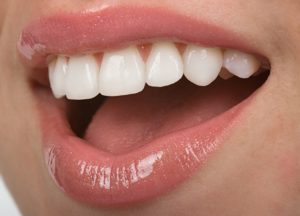3 Bad Breath Causes and Solutions

Approximately 25 percent of all men and women suffer from bad breath, also called halitosis. While gum and mints can mask the smell of bad breath temporarily, bad breath may return after you spit your gum out or your mint dissolves in your mouth. Instead of simply masking your bad breath when needed, take steps to find the root cause of your halitosis so you can then conquer your bad breath permanently.
Read on to learn about three common causes of chronic halitosis and how you can combat the bad breath they cause.
- Bad Oral Hygiene
The most common cause of bad breath is bad oral hygiene. When you do not brush and floss on a regular basis, food particles that emit bad odors may remain between your teeth.
In addition, after the sugar in foods you eat mix with cavity-causing bacteria in your mouth, a sticky, smelly substance called plaque can form on your teeth. As this substance remains on your teeth, it eventually turns into hard tartar that only a dentist can remove with special tartar-removing tools.
Many people also have sulfur-producing bacteria on their tongues and in the back of their throats. These bacteria also emit a bad odor.
To eliminate bad breath you suspect is from bad oral hygiene, first visit a dentist for a full dental exam and professional teeth cleaning. Your dentist can remove smelly tartar buildup that you cannot remove at home. Then, begin brushing your teeth and tongue thoroughly after each meal and flossing once a day.
While optional, rinsing with a bacteria-killing mouth rinse can help eliminate any bacteria that remain in your mouth after brushing to help fight bad breath.
- Dry Mouth
Dry mouth, or xerostomia, is a relatively common condition that can cause halitosis. Saliva helps prevent bad breath by washing away dead tissue cells that build up on the soft tissues inside of your mouth. When less saliva is in a mouth affected by xerostomia, fewer of these dead tissue cells wash away from saliva and cells that remain in the mouth for a long time begin to decompose and release bad odors.
While some people experience dry mouth due to medical conditions, one of the most common causes of dry mouth is certain medications. Hundreds of medications can cause dry mouth, including antihistamines, antidepressants, pain medications, and some high blood pressure medications.
If you take a medication that has dry mouth listed as a potential side effect and experience chronic halitosis, then consider asking your prescribing doctor for an alternative medication.
If no alternative medication is available, then increase your water intake to help your body produce as much saliva as possible, limit your consumption of dehydrating alcohol and caffeine, and chew on sugar-free gum that stimulates saliva production as you chew.
- Tonsilloliths
Another cause of bad breath is the presence of tonsilloliths, also called tonsil stones, in your tonsils. Your tonsils have many crevices, and tonsilloliths form when small particles of food get stuck in these crevices and then harden, or calcify. These hard calcium deposits emit a bad odor that can cause halitosis.
Some people more prone to tonsilloliths develop them than others due to numerous factors, including the shape and size of the crevices in their tonsils.
While some tonsilloliths are too small or hidden too deeply in tonsil crevices to see at home, others may appear as white spots on tonsils. You can dislodge tonsil stones by gargling with water and/or applying gentle pressure on the tonsillolith with a cotton swab until it dislodges. If you have a tonsil stone you cannot remove, then make an appointment with your dentist to remove it.
If you find that you develop frequent tonsil stones that cause you discomfort and/or chronic halitosis you feel you cannot live with, then speak to an ENT about permanently removing your tonsils.
If you suffer from chronic halitosis, then stop masking the symptoms and treat the cause of it instead. Contact Apollo Dental to schedule a dental exam and halitosis treatment today.

